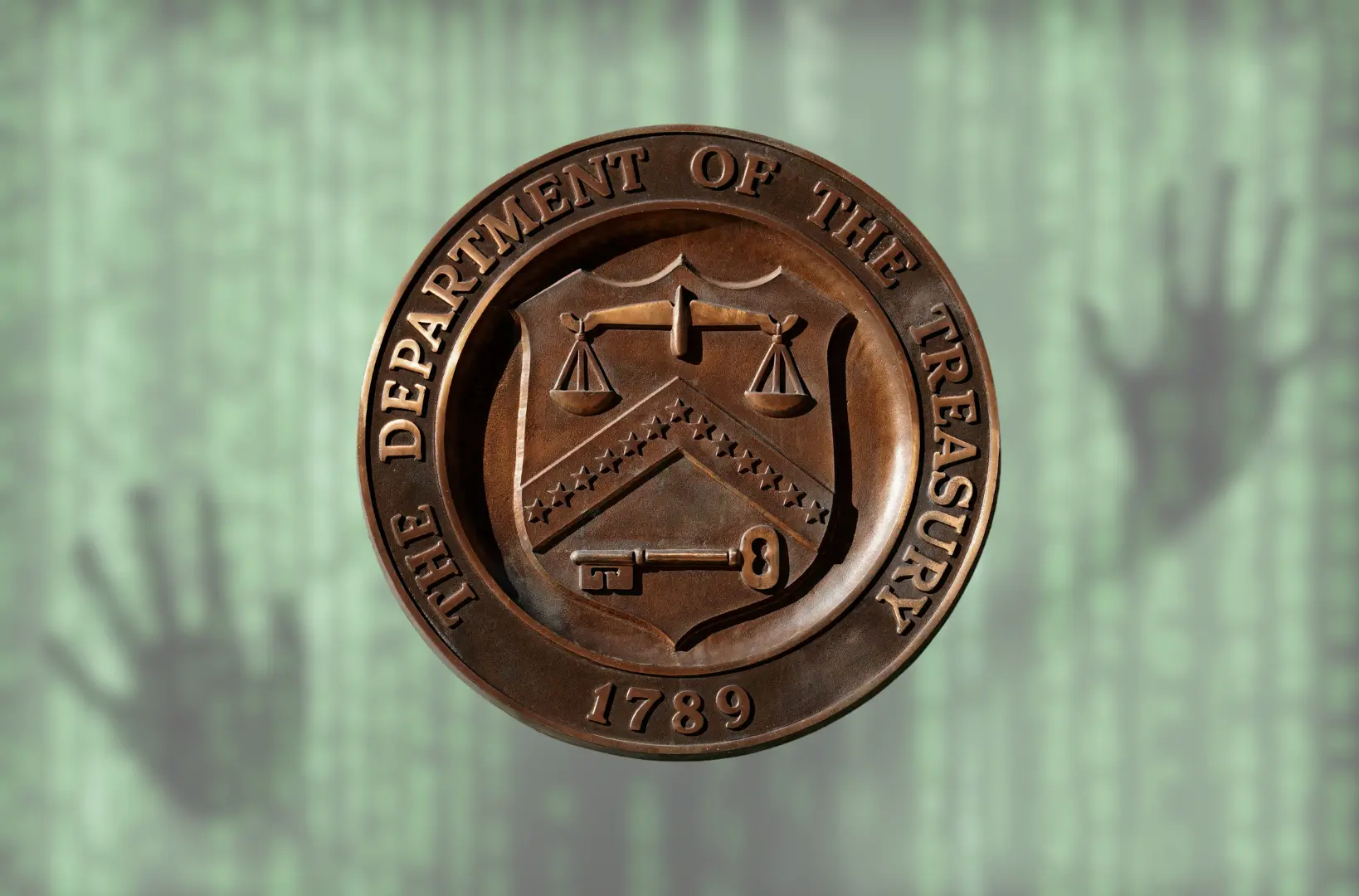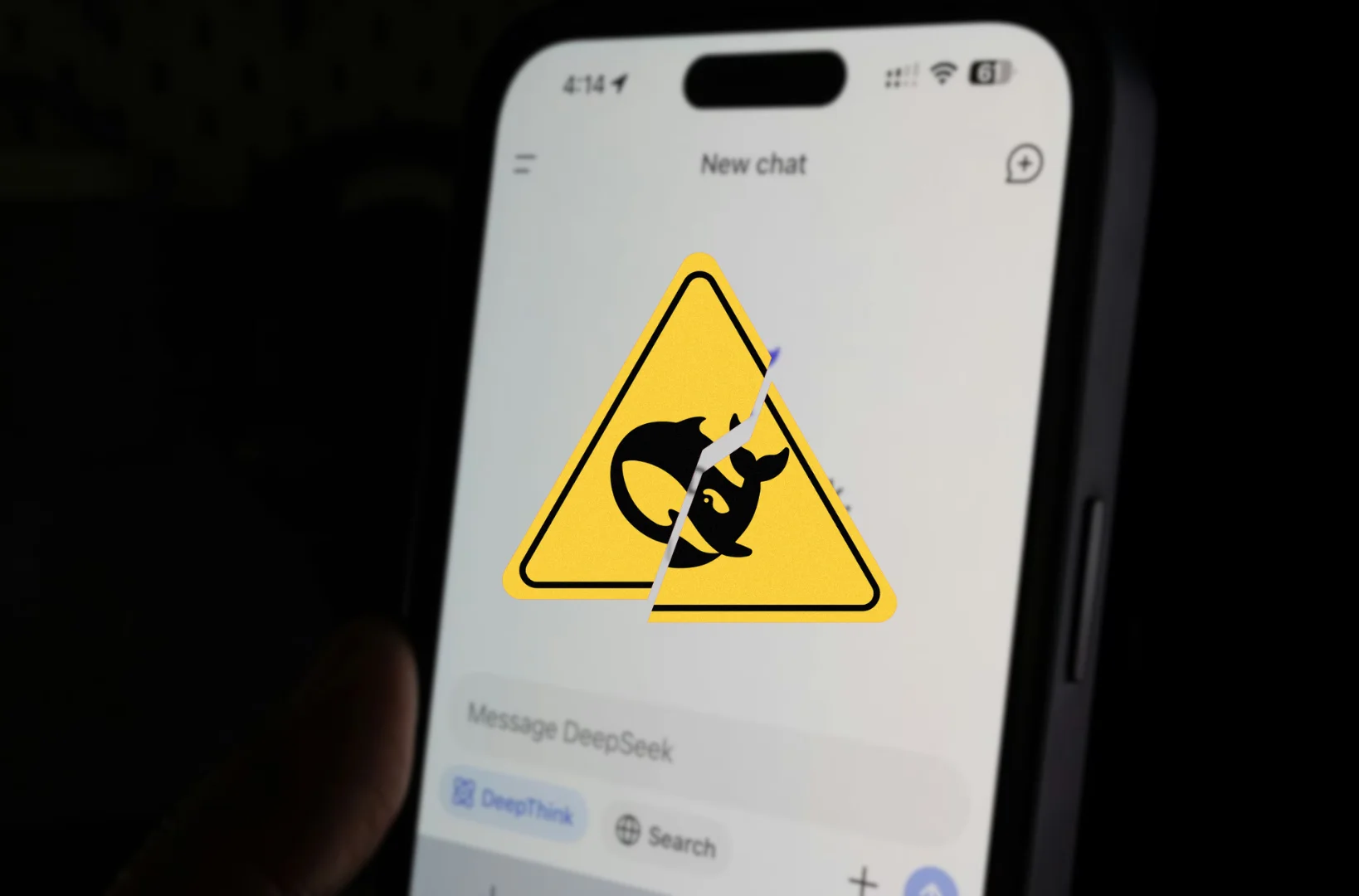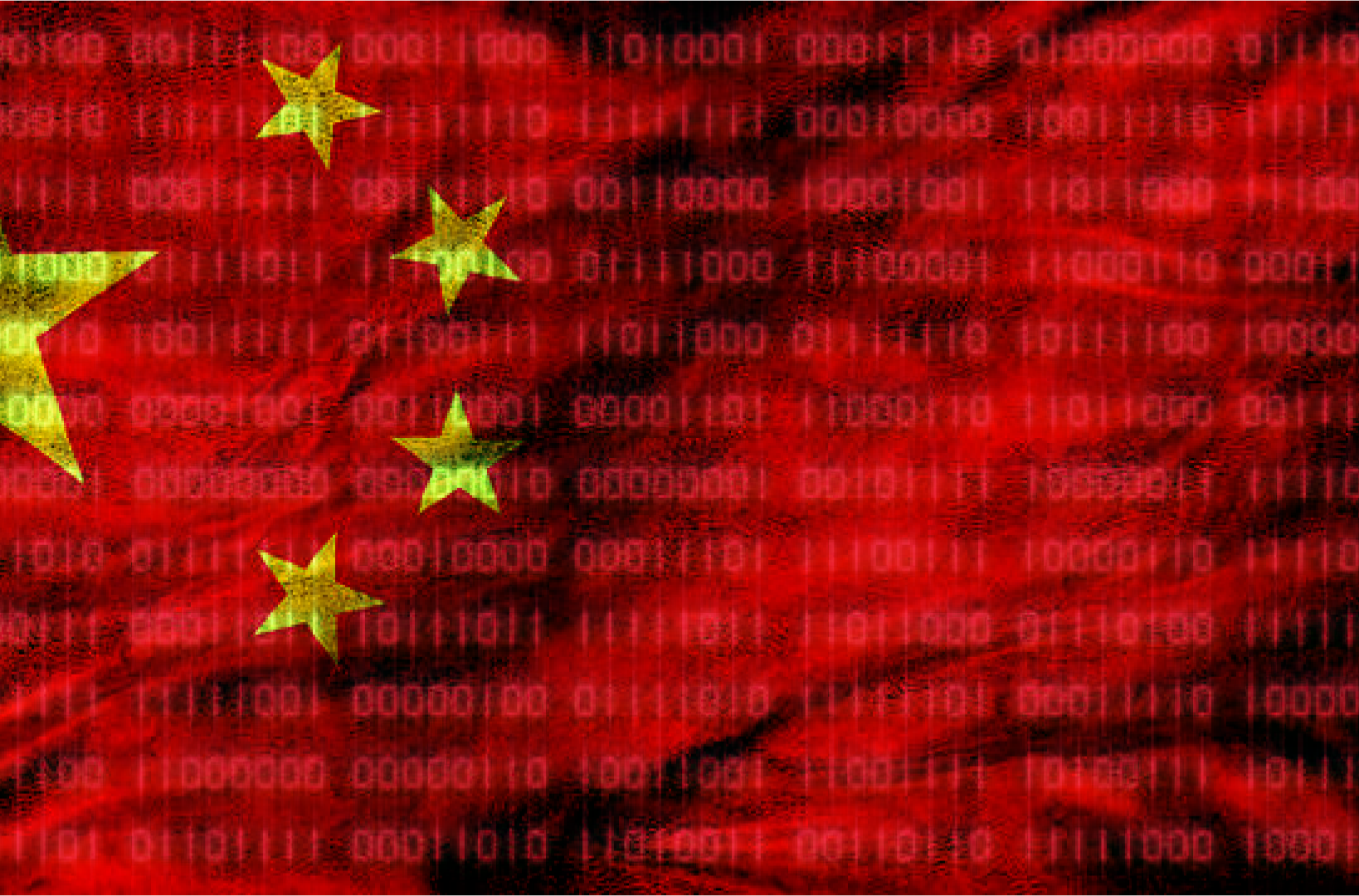In a landmark move, the United States has sanctioned a Chinese firm and an individual hacker believed to be responsible for orchestrating major cyber attacks targeting U.S. telecommunications and Treasury systems. This bold action underscores the growing tensions in cyberspace, with cyber threats becoming an increasingly critical point of contention in U.S.-China relations. The sanctions serve as both a retaliatory measure and a warning to other state-backed cyber actors around the world.
Overview of the Sanctions
The U.S. government has imposed sanctions on a Chinese telecommunications firm and an individual hacker who is believed to have played a central role in several high-profile cyber attacks. The targeted Chinese company allegedly facilitated cyber espionage activities, and the hacker is accused of being behind the breaches that targeted critical sectors of the U.S. government, specifically telecom networks and the U.S. Treasury Department.
Key Points:
- Sanction Targets: The Chinese firm and hacker are accused of facilitating or directly participating in cyber espionage that compromised U.S. infrastructure.
- Critical Sectors Affected: U.S. telecommunications networks and Treasury systems, both of which hold critical national security importance.
- Government Response: These sanctions are part of a broader strategy by the U.S. government to safeguard against foreign cyber threats and to send a strong message about the consequences of state-backed cyber activities.
These sanctions demonstrate the U.S. government’s determination to respond to cyber intrusions with significant legal and financial consequences for those involved in or supporting such operations.
Background on the Targeted Chinese Firm
The Chinese firm that has been sanctioned has long been suspected of facilitating cyber espionage operations that target U.S. infrastructure. Although it has denied any wrongdoing, reports indicate that the company was used as a front to enable state-sponsored cyber activities. This firm is not only a prominent player in the Chinese tech sector but also has a considerable global presence, making its alleged involvement in espionage all the more significant.
Key Aspects of the Firm:
- Facilitating Cyber Operations: The firm is accused of providing the necessary technology and infrastructure that allowed hackers to infiltrate U.S. systems.
- International Operations: While based in China, the company operates in several countries, including the U.S., Europe, and Asia, which gives it access to global communication networks and sensitive information.
- Previous Allegations: There have been prior reports linking the firm to espionage activities, but this is the first time the U.S. government has taken such drastic measures against the company.
The company’s alleged involvement in these operations highlights the growing sophistication and coordination between private sector entities and government-backed cyber activities, particularly in countries with more centralized control over their tech industries.
Details on the Hacker and Alleged Cyber Attacks
The hacker at the center of these sanctions is believed to be the mastermind behind the breaches that targeted U.S. telecom systems and the Treasury Department. The attacks, which were conducted over several months, involved advanced tactics including zero-day exploits and malware deployment. These tools allowed the hacker to bypass traditional security measures, infiltrating networks undetected.
Telecom Hacks
The telecommunications network hack is one of the most troubling elements of this incident. Cyber intruders were able to access sensitive data from major U.S. telecom companies, potentially compromising the private communications and personal information of millions of individuals. The breach could have led to communication disruptions, espionage, and significant data leaks.
Impact of Telecom Hacks:
- Data Breach: Hackers gain access to confidential data, potentially including private communications, financial information, and other sensitive materials.
- System Vulnerabilities: The cyber attack highlighted significant vulnerabilities in telecom infrastructure, which could be exploited in future attacks.
- Public Trust: The breach has eroded public trust in the ability of telecom companies to safeguard sensitive information, raising concerns about privacy in the digital age.
Treasury Hacks
The cyber attack on the U.S. Treasury systems is even more alarming, as it targeted some of the most sensitive financial systems in the world. Hackers were able to exploit vulnerabilities in Treasury systems, gaining unauthorized access to vital financial data that could potentially influence economic policies and national financial stability.
Impact of Treasury Hacks:
- Economic Manipulation: The breach could have given the attackers the ability to manipulate financial data or influence key economic decisions, including market movements.
- National Security Risk: Treasury systems manage some of the most crucial functions in the U.S. government, and any disruption or manipulation of these systems poses a serious threat to national security.
- Damage to Global Trust: The attack could damage global confidence in U.S. financial institutions, which are central to the global economy.
The combination of attacks on telecom networks and Treasury systems underscores the increasing sophistication of cyber threats targeting national security.
Impact on U.S. Cybersecurity and National Security
These recent sanctions signal a broader shift in U.S. cybersecurity policy. As the threat of cyber attacks continues to grow, the U.S. government is taking a more aggressive stance in defending its digital infrastructure. This includes both proactive and reactive measures aimed at deterring foreign cyber adversaries.
Key Impacts on U.S. Cybersecurity:
- Strengthening Defenses: In response to these breaches, the U.S. is likely to invest more heavily in cybersecurity defenses for its critical infrastructure, including more stringent regulations for telecom and financial sectors.
- International Cybersecurity Cooperation: The U.S. is expected to work more closely with international partners to track and mitigate cross-border cyber threats.
- Increased Cyber Intelligence Sharing: Governments and private companies will likely enhance intelligence-sharing initiatives to identify and counter threats more effectively.
The breach of such critical systems also underscores the vulnerabilities inherent in global digital infrastructure, prompting a reevaluation of how nations protect against cyber threats.
Broader Impact on U.S.-China Relations
The imposition of sanctions on a Chinese firm and hacker comes amid heightened tensions between the U.S. and China, particularly on issues of cybersecurity and trade. Cyber espionage has long been a contentious issue between the two countries, and this latest move could further complicate diplomatic relations. These sanctions represent not just a cybersecurity challenge but also a significant diplomatic gesture.
Diplomatic Repercussions:
- Tensions Between Nations: The sanctions could escalate tensions between the U.S. and China, especially as both countries compete for global influence in technological innovation and economic leadership.
- Retaliatory Measures: China may retaliate by imposing sanctions on U.S. companies or hackers, leading to an even more contentious environment.
- Impact on Trade and Tech Relations: These sanctions may affect ongoing trade talks and could harm tech companies with business interests in both nations.
Given the strategic importance of both the U.S. and China in the global economy, these sanctions are likely to reverberate well beyond the immediate scope of cybersecurity.
What This Means for the Future of Cybersecurity
As cyber threats evolve, nations will likely adopt more aggressive and coordinated policies to protect their digital infrastructures. The U.S. sanctions against a Chinese firm and hacker could mark the beginning of a new era in cyber diplomacy, where countries not only defend against attacks but also hold perpetrators accountable on the global stage.
Emerging Trends in Cybersecurity:
- Cross-Border Cybersecurity Cooperation: With state-sponsored cyber attacks becoming more frequent, countries are increasingly likely to cooperate in sharing intelligence and holding attackers accountable.
- Stronger Regulations: Governments will likely introduce stricter cybersecurity regulations for businesses that manage critical infrastructure, with greater scrutiny on companies involved in the telecom and financial sectors.
- Cybersecurity Investment: Increased investment in next-gen technologies, such as AI-driven threat detection, will be crucial in combating the rise of advanced cyber threats.
As the digital landscape continues to expand, the need for international cooperation and enhanced technological defenses will be paramount to ensuring global cybersecurity.
Conclusion
The U.S. sanctions against a Chinese firm and hacker reflect the growing severity of state-sponsored cyber threats and the increasing need for stronger cybersecurity protocols globally. This bold action sends a message that the U.S. will not tolerate cyber aggression and is willing to use its economic power to deter such activities. The move also signals a shift in the way nations address cyber threats and holds the potential for reshaping international relations and cybersecurity strategies moving forward.
Suggested reads:
- Nintendo Switch 2 Leak Reveals 360-Degree Console Render
- Nintendo and LEGO Launch Game Boy Set: A Nostalgic LEGO Build
- Ray-Ban Meta Glasses: The Next Big Thing in Wearable Tech

Jahanzaib is a Content Contributor at Technado, specializing in cybersecurity. With expertise in identifying vulnerabilities and developing robust solutions, he delivers valuable insights into securing the digital landscape.









55 Responses
Hemşire Forması | Nur Medical Wear hemşire forması, scrubs ayakkabı
This was beautiful Admin. Thank you for your reflections.
This is my first time pay a quick visit at here and i am really happy to read everthing at one place
Very well presented. Every quote was awesome and thanks for sharing the content. Keep sharing and keep motivating others.
Awesome! Its genuinely remarkable post, I have got much clear idea regarding from this post
Hi there to all, for the reason that I am genuinely keen of reading this website’s post to be updated on a regular basis. It carries pleasant stuff.
For the reason that the admin of this site is working, no uncertainty very quickly it will be renowned, due to its quality contents.
I really like reading through a post that can make men and women think. Also, thank you for allowing me to comment!
I am truly thankful to the owner of this web site who has shared this fantastic piece of writing at at this place.
I appreciate you sharing this blog post. Thanks Again. Cool.
Very well presented. Every quote was awesome and thanks for sharing the content. Keep sharing and keep motivating others.
I really like reading through a post that can make men and women think. Also, thank you for allowing me to comment!
I very delighted to find this internet site on bing, just what I was searching for as well saved to fav
I am truly thankful to the owner of this web site who has shared this fantastic piece of writing at at this place.
Awesome! Its genuinely remarkable post, I have got much clear idea regarding from this post
I do not even understand how I ended up here, but I assumed this publish used to be great
Good post! We will be linking to this particularly great post on our site. Keep up the great writing
I appreciate you sharing this blog post. Thanks Again. Cool.
I am truly thankful to the owner of this web site who has shared this fantastic piece of writing at at this place.
I’m often to blogging and i really appreciate your content. The article has actually peaks my interest. I’m going to bookmark your web site and maintain checking for brand spanking new information.
Hi there to all, for the reason that I am genuinely keen of reading this website’s post to be updated on a regular basis. It carries pleasant stuff.
naturally like your web site however you need to take a look at the spelling on several of your posts. A number of them are rife with spelling problems and I find it very bothersome to tell the truth on the other hand I will surely come again again.
very informative articles or reviews at this time.
This is my first time pay a quick visit at here and i am really happy to read everthing at one place
This was beautiful Admin. Thank you for your reflections.
I truly appreciate your technique of writing a blog. I added it to my bookmark site list and will
Awesome! Its genuinely remarkable post, I have got much clear idea regarding from this post
I like the efforts you have put in this, regards for all the great content.
I like the efforts you have put in this, regards for all the great content.
I very delighted to find this internet site on bing, just what I was searching for as well saved to fav
I just like the helpful information you provide in your articles
This is my first time pay a quick visit at here and i am really happy to read everthing at one place
I appreciate you sharing this blog post. Thanks Again. Cool.
Awesome! Its genuinely remarkable post, I have got much clear idea regarding from this post
Pretty! This has been a really wonderful post. Many thanks for providing these details.
Pretty! This has been a really wonderful post. Many thanks for providing these details.
I like the efforts you have put in this, regards for all the great content.
I like the efforts you have put in this, regards for all the great content.
I very delighted to find this internet site on bing, just what I was searching for as well saved to fav
For the reason that the admin of this site is working, no uncertainty very quickly it will be renowned, due to its quality contents.
I just like the helpful information you provide in your articles
There is definately a lot to find out about this subject. I like all the points you made
I like the efforts you have put in this, regards for all the great content.
You’re so awesome! I don’t believe I have read a single thing like that before. So great to find someone with some original thoughts on this topic. Really.. thank you for starting this up. This website is something that is needed on the internet, someone with a little originality!
I like the efforts you have put in this, regards for all the great content.
Awesome! Its genuinely remarkable post, I have got much clear idea regarding from this post
very informative articles or reviews at this time.
This was beautiful Admin. Thank you for your reflections.
Great information shared.. really enjoyed reading this post thank you author for sharing this post .. appreciated
I am truly thankful to the owner of this web site who has shared this fantastic piece of writing at at this place.
I appreciate you sharing this blog post. Thanks Again. Cool.
Good post! We will be linking to this particularly great post on our site. Keep up the great writing
Such a great addition to my toolkit.
Nice post. I learn something totally new and challenging on websites
naturally like your web site however you need to take a look at the spelling on several of your posts. A number of them are rife with spelling problems and I find it very bothersome to tell the truth on the other hand I will surely come again again.